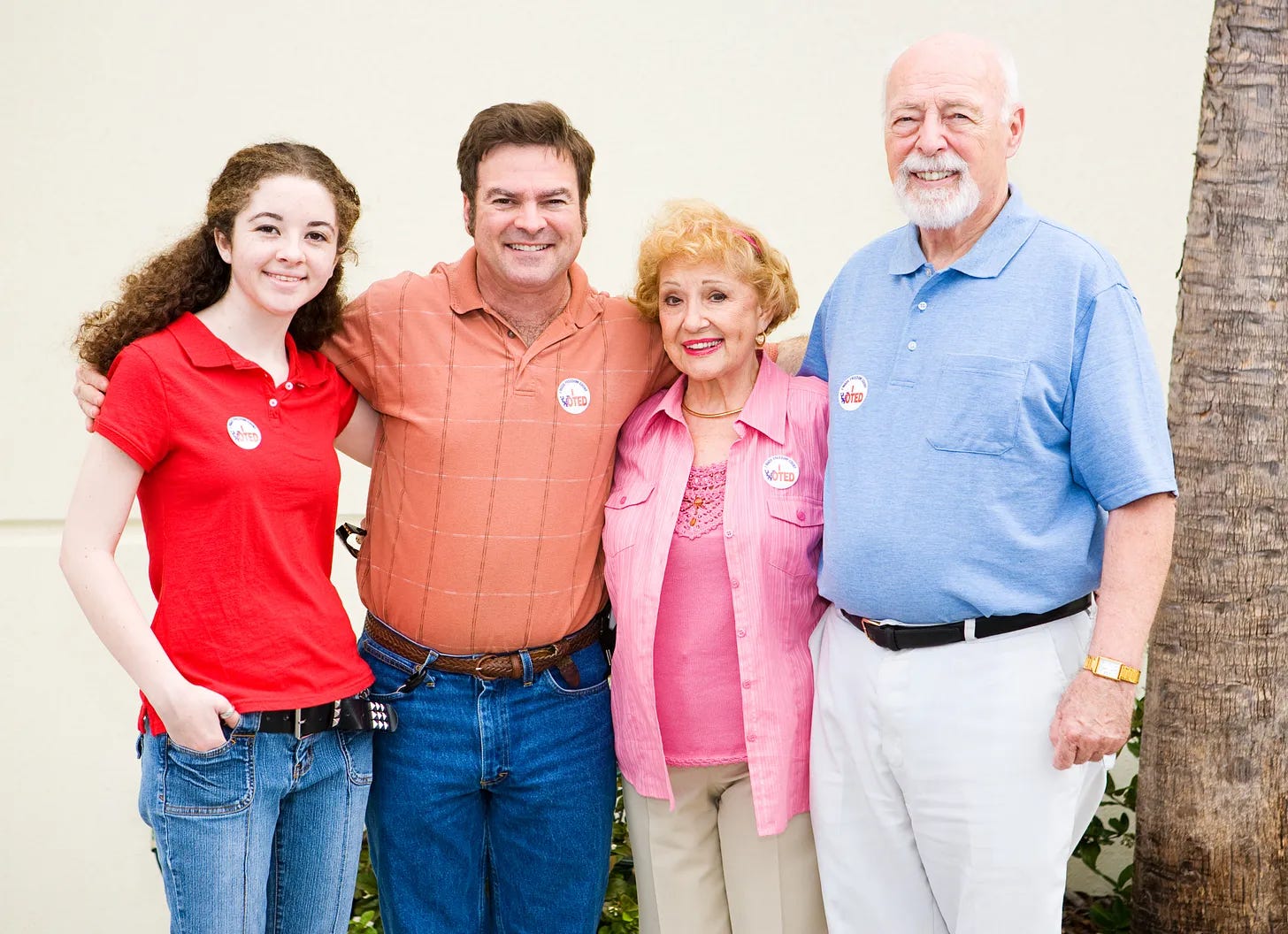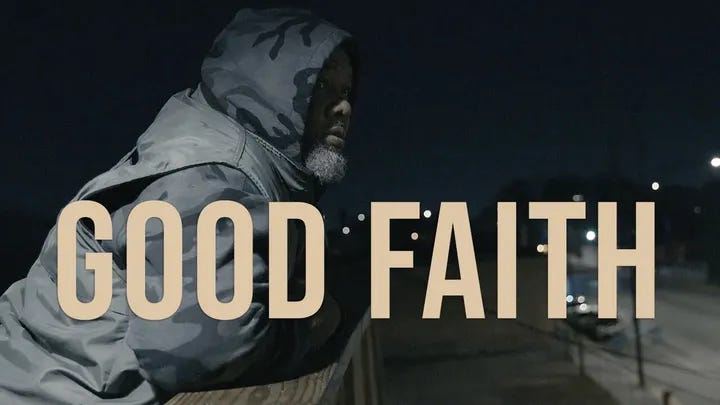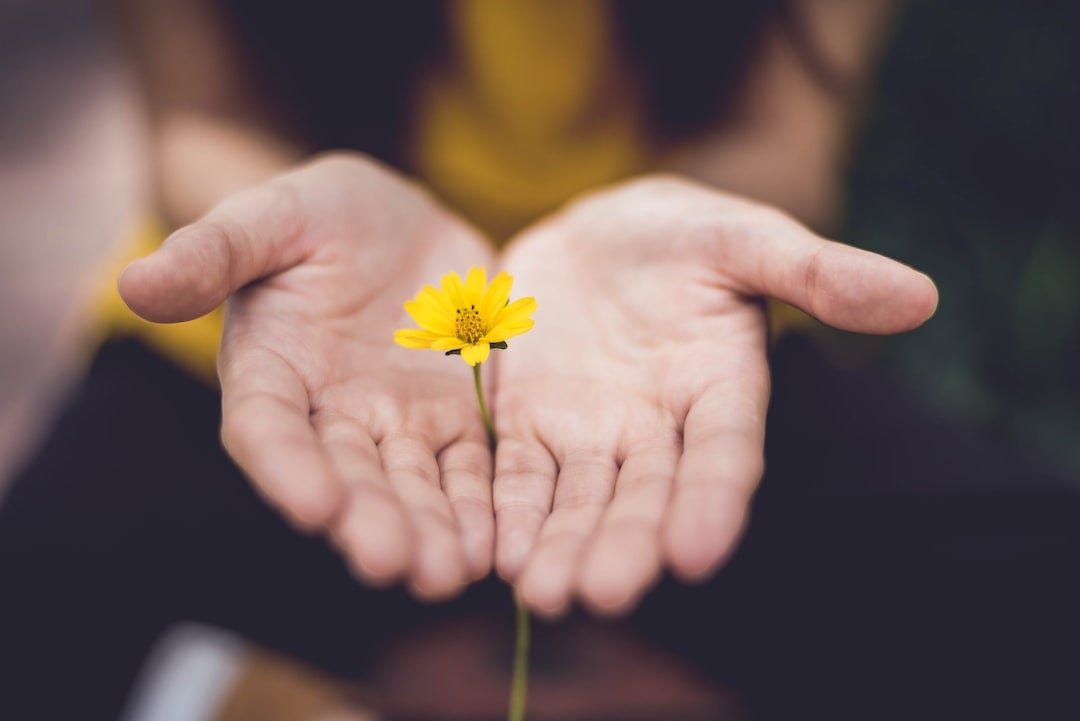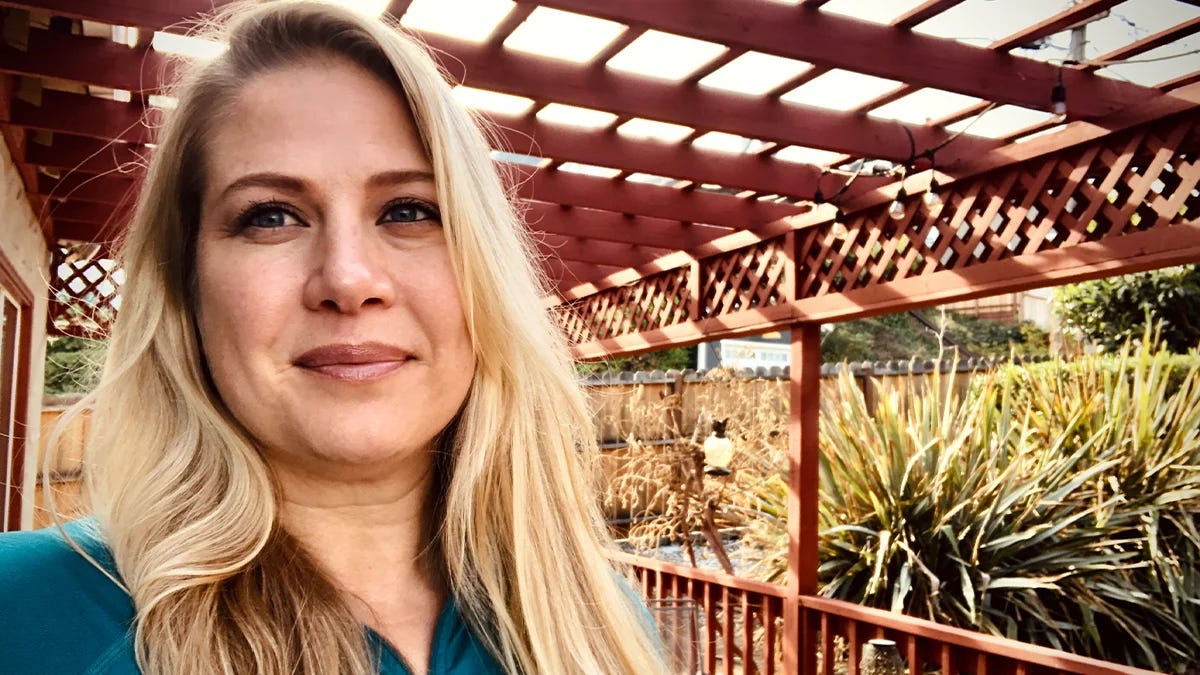I disagree with my conservative parents, but I don't hate them
This week on our Substack, Aliza Fassett writes about her relationship with her parents, and how really listening to and understanding those who hold views you don’t agree with allows room for more meaningful relationships with loved ones despite political differences.
“As much as it pained my nineteen-year-old self to admit it, I needed to listen to why my parents believed what they believed in order to understand them fully. Only then could I really decide whether I agreed with their perspectives or not. As I went through these changes, I realized that my former commitment to internet progressivism was predominantly a way for me to rebel against my family. I may not have dyed my hair or snuck out of the house in high school, but I did end up taking an unwavering stance against every belief that my parents held dear. As I began to open my mind and truly educate myself, however, I had to admit that I was harboring animosity toward my parents—who raised me with utmost care and met my every need—for reasons that were ultimately shallow. Political stances and intellectual values do inform someone’s character, but by no means do they define them. They do not supersede traits like love, sacrifice, and commitment, because these traits transcend politics. They are what make us human.”
ELI STEELE: Pastor Corey Brooks is reviving the American Dream
For Fox News Opinion, FAIR Advisor Eli Steele writes about Pastor Corey Brooks’ mission to bring the American dream back to life on the south side of Chicago.
“When I met the pastor on the rooftop built on top of shipping containers where he has been living for the past 344 days with the goal of raising $35 million to build the building debt free, he told me that the American Dream is never "out there." It is not the fancy car or the house with the white picket fence. Rather, the dream lives within each one of us, in our souls. The dream fuels the belief in ourselves to make something of our talents, to confront the unknown, to become somebodies, and to have a meaningful impact on those around us.
Yet the pastor knows that the dream has been defeated by bad faith within too many people in the neighborhood. This bad faith, put plainly, is faithlessness in oneself, one’s fellow man and in the society we live in. How does a young boy on the South Side keep good faith in America when he is constantly told he is oppressed and a victim of white supremacy? When he is told that efforts to better himself is acting white? When he is told he cannot agent his own uplift without help of the government? When all around him he sees a permanent black underclass ruled by gangs who think nothing of snuffing out a life?
"That is why it is so important for me to believe in the American Dream," the pastor told me. "If I don’t believe in it, don’t talk about it, don’t model it, then how do they know the dream exists?"
On Gratitude
On her Substack, Broadview, FAIR Advisor Lisa Selin Davis writes about the elusive nature of gratitude in times of cultural upheaval and why community is so important.
“In the wake of several mass shootings in the last week, including one at the LGBTQ club in Colorado Springs, I want to take this moment to acknowledge and lament the horror of gun violence and political polarization in our country. But I also want to exult in the community we’ve created, and the support we’ve shown each other, and the changing media narrative that more accurately represents the experiences of kids with gender distress and their families. Those concerned about how we are treating these kids are a diverse group. They include liberals and conservatives, young and old, trans and gay and lesbian and gender nonconforming and people who are none of those things. I’m grateful for the community we have, and for more people speaking up.
I believe deeply in the normalcy of gender nonconformity, and that we are struggling to find ways to support it in this country. Thanks for being with me while I try to tell that story.”
Canceled ‘Jihad Rehab’ Filmmaker Finds Vindication – and Now She Wants an Oscar Nom
For The Wrap, Sharon Waxman writes about documentary filmmaker Meg Smaker’s journey with her documentary “The UnRedacted” that got blacklisted after its Sundance premiere and has now been lauded by publications from The New York Times to The Atlantic.
“And then Sebastian Junger, the veteran war correspondent who covered the conflict in Afghanistan for a decade, stepped forward to offer a ringing defense of the film in The National Review titled: “Inside the Shameful Cancellation of ‘Jihad Rehab.’”
“Exclusion… — the ruling out of certain individuals because of race or ethnicity — is ethically more problematic,” he wrote, considering the problem. “Pursued far enough, exclusion would seem to rule out the entire practice of journalism. The premise of foreign reporting is that you don’t have to be Jewish to understand the Holocaust, black to understand civil rights, or dispossessed to understand ethnic cleansing; being human is sufficient.”
More recently, author and podcaster Sam Harris invited Smaker to talk about being cancelled. The three-hour conversation went viral, led to the creation of a GoFundMe account, which at this point has raised $736,000 in donations so that the filmmaker can distribute the film herself.”
What’s your ‘red line’? | Jonathan Haidt with Mónica Guzmán
For Braver Angels, Monica Guzman and Jonathan Haidt talk about whether or not we can ever really separate ourselves from tribalism and the problem with kids these days.
“The struggle between ‘for’ and ‘against’ is the mind’s worst disease.” In this episode of the Braver Angels Podcast, we brought some of the big, hairy questions that challenge political bridge building to one of the most outspoken voices in social psychology — NYU professor and best-selling author Jonathan Haidt.
Can we ever really claw our way out of tribalism? What would it take to fix the structures that warp our thinking? And what does this leading scholar of morality make of the popular notion that you can’t engage some ideas across the political divide and still be good? Listen in as Haidt — author of The Righteous Mind, The Coddling of the American Mind, and the upcoming Life After Babel: Adapting To A World We Can No Longer Share — joins Braver Angels’ Mónica Guzmán for a conversation that explores everything from Haidt’s favorite bit of ancient wisdom to the problem with kids these days (especially girls on the Left) and what it might ultimately mean to be loyal to truth.”
More than 1,000 professors sign on to ‘Stanford Academic Freedom Declaration’
For The College Fix, Esther Wickham writes about an open letter signed by over 1,000 professors that calls on universities and professors to adopt and implement the “Chicago Trifecta” — the Chicago Principles on unilateral free speech, the Kalven report that requires institutional neutrality on political and social topics, and the Shils report, making “academic contribution the sole basis for hiring and promotion.”
Cochrane, on his Grumpy Economist blog, recently pointed out that some academics are scared to sign the letter because other signatories have been labeled as “well known deplorables.”
“That reaction tells us a big part of the problem,” he wrote. “All along we have tried very hard to reach out to self-described left/liberal/democrat colleagues, who privately bemoan what’s going on but are too afraid to be seen in public. But why not fix it: if some of you sign perhaps that will give courage for more of you to sign. Take it over, get together with your friends, add lots of signatures, make this your cause, prove that we can stand together for freedom!”
UC Berkeley statistics Professor Will Fithian told the Daily Californian student newspaper via email that he signed the declaration because “I have heard from many students and colleagues that they are afraid of openly discussing controversial issues.”
“[W]e all need to foster a community that tolerates a wide range of opinions, even on difficult topics that provoke very strong feelings,” he said.
Want to help advance civil rights and liberties for all, and promote a common culture based on fairness, understanding, and humanity? Sign up for a free subscription today!
Join the FAIR Community
Become a FAIR volunteer or to join a FAIR chapter.
Join a Welcome to FAIR Zoom information session to learn more about our mission, or watch a previously recorded session in the Members section of www.fairforall.org.
Take the Pro-Human Pledge and help promote a common culture based on fairness, understanding, and humanity.
Join the FAIR community to connect and share information with other members.
Share your reviews and incident reports on our FAIR Transparency website.










